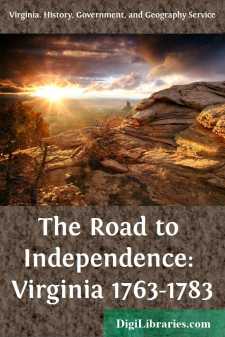Categories
- Antiques & Collectibles 13
- Architecture 36
- Art 48
- Bibles 22
- Biography & Autobiography 816
- Body, Mind & Spirit 145
- Business & Economics 28
- Children's Books 18
- Children's Fiction 14
- Computers 4
- Cooking 94
- Crafts & Hobbies 4
- Drama 346
- Education 58
- Family & Relationships 59
- Fiction 11831
- Foreign Language Study 3
- Games 19
- Gardening 17
- Health & Fitness 34
- History 1378
- House & Home 1
- Humor 147
- Juvenile Fiction 1873
- Juvenile Nonfiction 202
- Language Arts & Disciplines 89
- Law 16
- Literary Collections 686
- Literary Criticism 179
- Mathematics 13
- Medical 41
- Music 40
- Nature 179
- Non-Classifiable 1768
- Performing Arts 7
- Periodicals 1453
- Philosophy 66
- Photography 2
- Poetry 897
- Political Science 203
- Psychology 45
- Reference 154
- Religion 516
- Science 126
- Self-Help 86
- Social Science 82
- Sports & Recreation 34
- Study Aids 3
- Technology & Engineering 59
- Transportation 23
- Travel 463
- True Crime 29
Our website is made possible by displaying online advertisements to our visitors.
Please consider supporting us by disabling your ad blocker.
The Road to Independence: Virginia 1763-1783
Categories:
Description:
Excerpt
Virginia, the birthplace of our nation, played an important role in the winning of American independence. Virginia, the largest and the most influential of the 13 colonies, led the struggle for American independence and has helped to formulate American ideals and to shape our country's institutions.
Introduction
This publication was prepared to assist teachers in developing topics of study relating to the American Revolution and Virginia's role in the winning of independence and to help students develop deeper appreciation for the rich heritage that is theirs as citizens of the Commonwealth. The Virginia tradition was created by responsible men and women who believed in the inherent dignity of the individual, the role of government as a servant of the people, the value of freedom, justice, equality, and the concept of "rule of law." These ideals and beliefs remain the hallmark of Virginia and the nation.
Important objectives of this publication are:
To emphasize the study of Virginia history during the period from 1763 to 1783 when the state exerted influential leadership and wisdom in the winning of American independence;
To develop a deeper understanding of the meaning of freedom and basic principles and traditions which have nourished and sustained the American way of life;
To further the students' understanding of individual rights and responsibilities in a free society;
To further acquaint students with their heritage of freedom and the importance of perpetuating democratic traditions; and
To further students' understanding of the concept of self-government and the American way of life.
It is hoped that this publication will assist in achieving these objectives.
Division of Secondary Education
State Department of EducationClyde J. Haddock, Assistant Supervisor
History, Government, and Geography Service
State Department of EducationMrs. Jerri Button, Supervisor
History, Government, and Geography Service
State Department of EducationJames C. Page, Assistant Supervisor
History, Government, and Geography Service
State Department of EducationThomas A. Elliott, Assistant Supervisor
History, Government, and Geography Service
State Department of EducationDr. D. Alan Williams, Consultant
THE ROAD TO INDEPENDENCE: VIRGINIA 1763-1783
Professor of History
University of Virginia
The Road to Independence:
Virginia 1763-1783
Part I:
1763: The Aftermath of Victory
Virginia in 1763 appeared to stand on the edge of a new era of greatness. The Peace of Paris signed that year confirmed the total victory of the British in North America during the long French and Indian War (1754-1763). Virginia's natural enemies were subdued: the French were driven from Canada, the Forks of the Ohio, the Illinois Country, and Louisiana; the Spanish were forced to give up Florida; and the Indians, now without any allies, were defeated or banished beyond the Appalachians. Virginians were free to continue their remarkable growth of the past 40 years during which they had left the Tidewater, pushed up the James, Rappahannock, Appomattox, and Potomac river basins, and joined thousands of Scotch-Irish and Germans pushing southward out of Pennsylvania into the Valley of Virginia. Although they were halted temporarily in 1755 when Braddock's disastrous defeat in Pennsylvania and the massacre of frontier pioneer James Patton at Draper's Meadow (Blacksburg) encouraged the Indians to resist the white man's advance, Virginians eagerly eyed the lands in southwestern Virginia along the Holston, Clinch, and French Lick Rivers and those that lay beyond the mountains along the Ohio....


